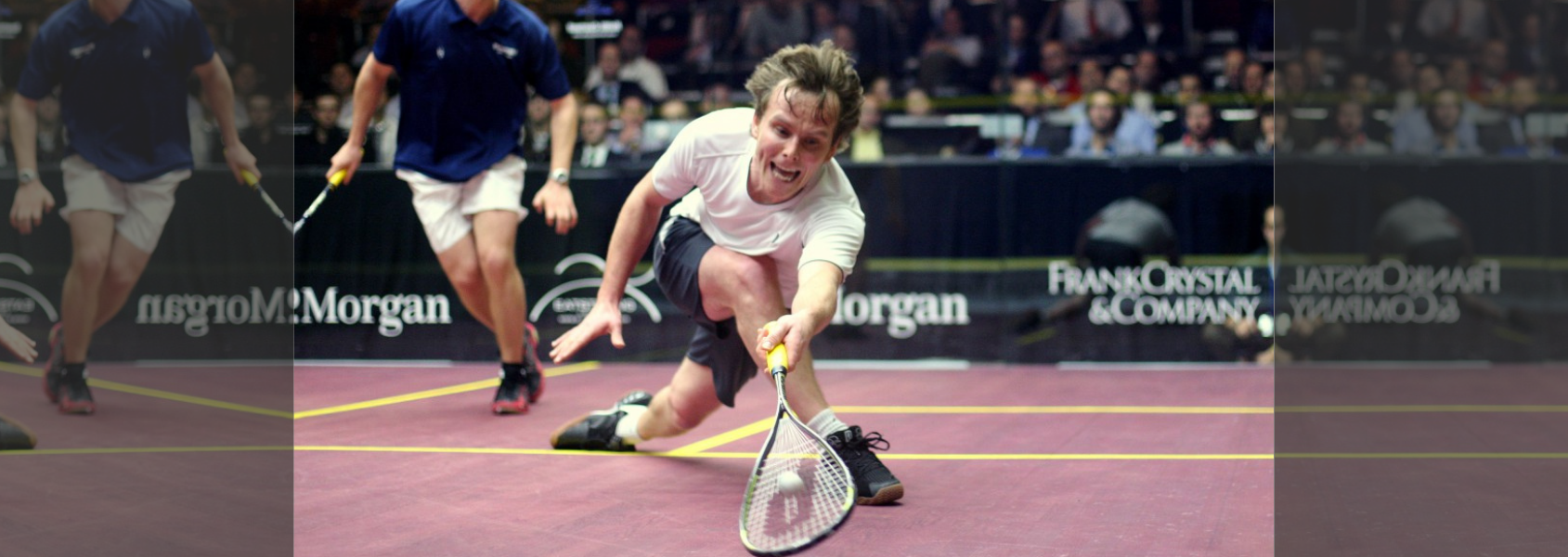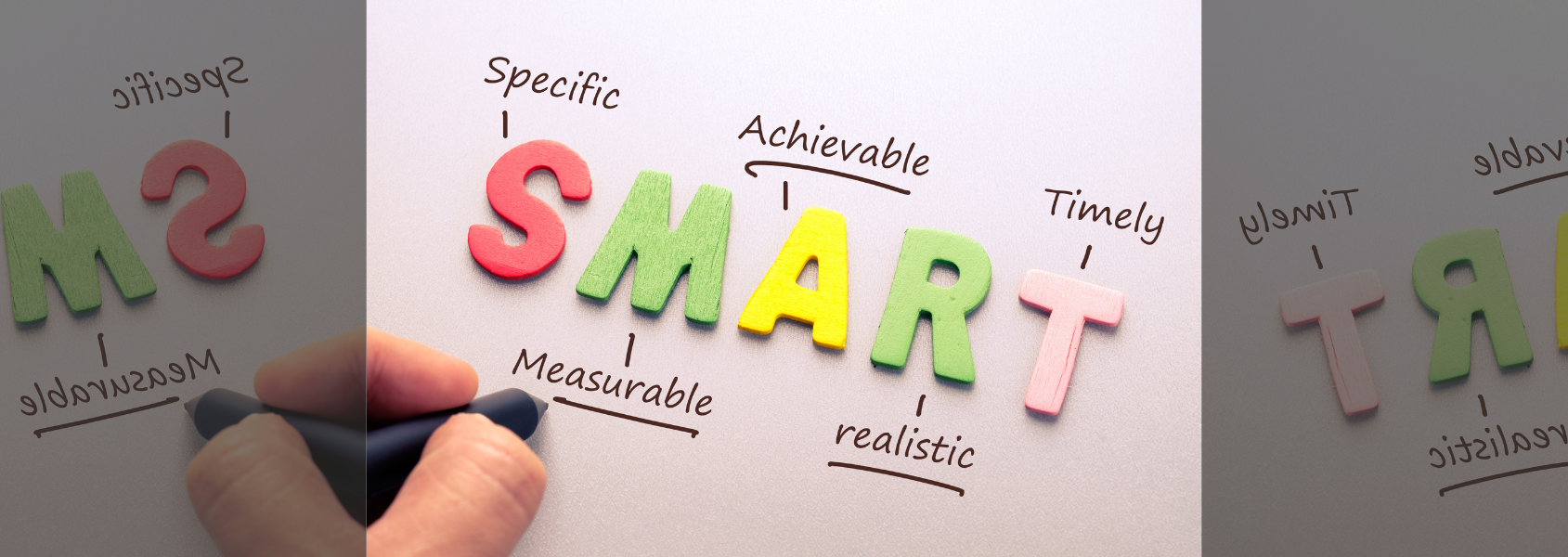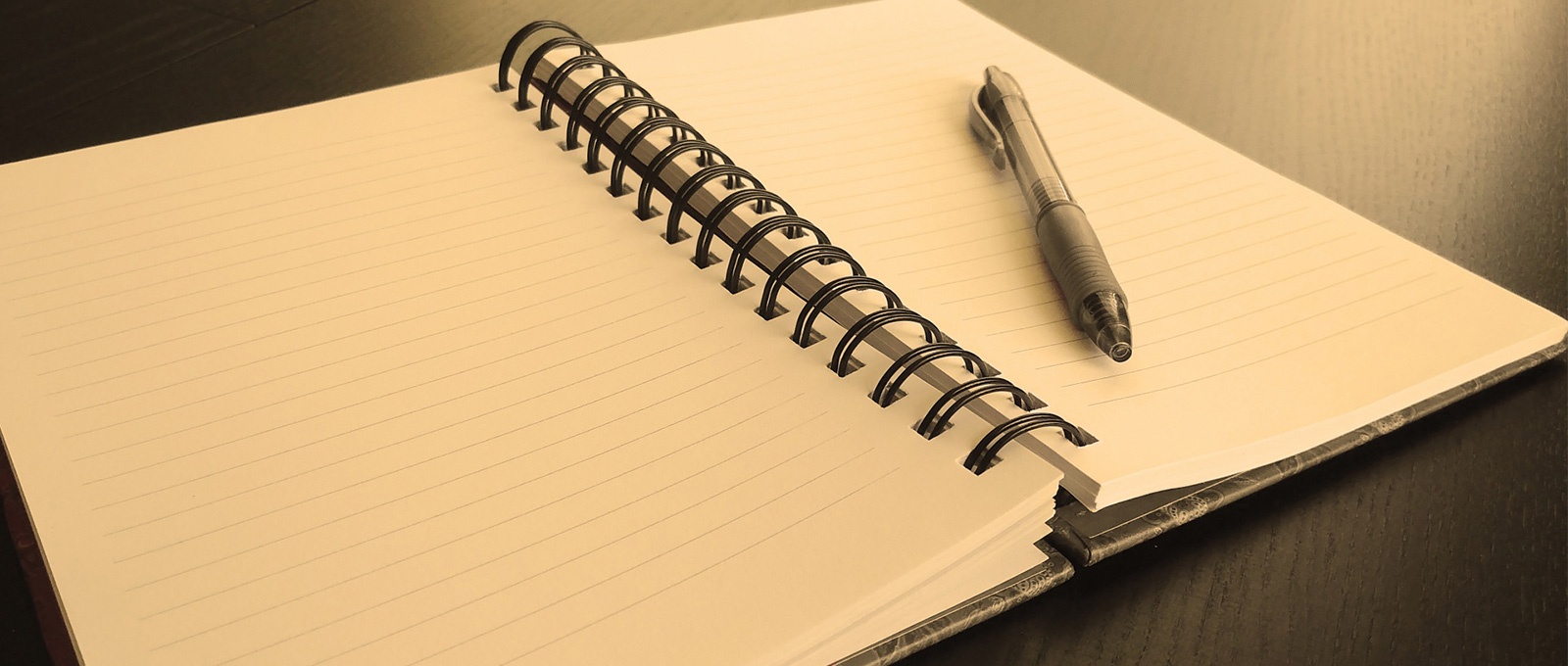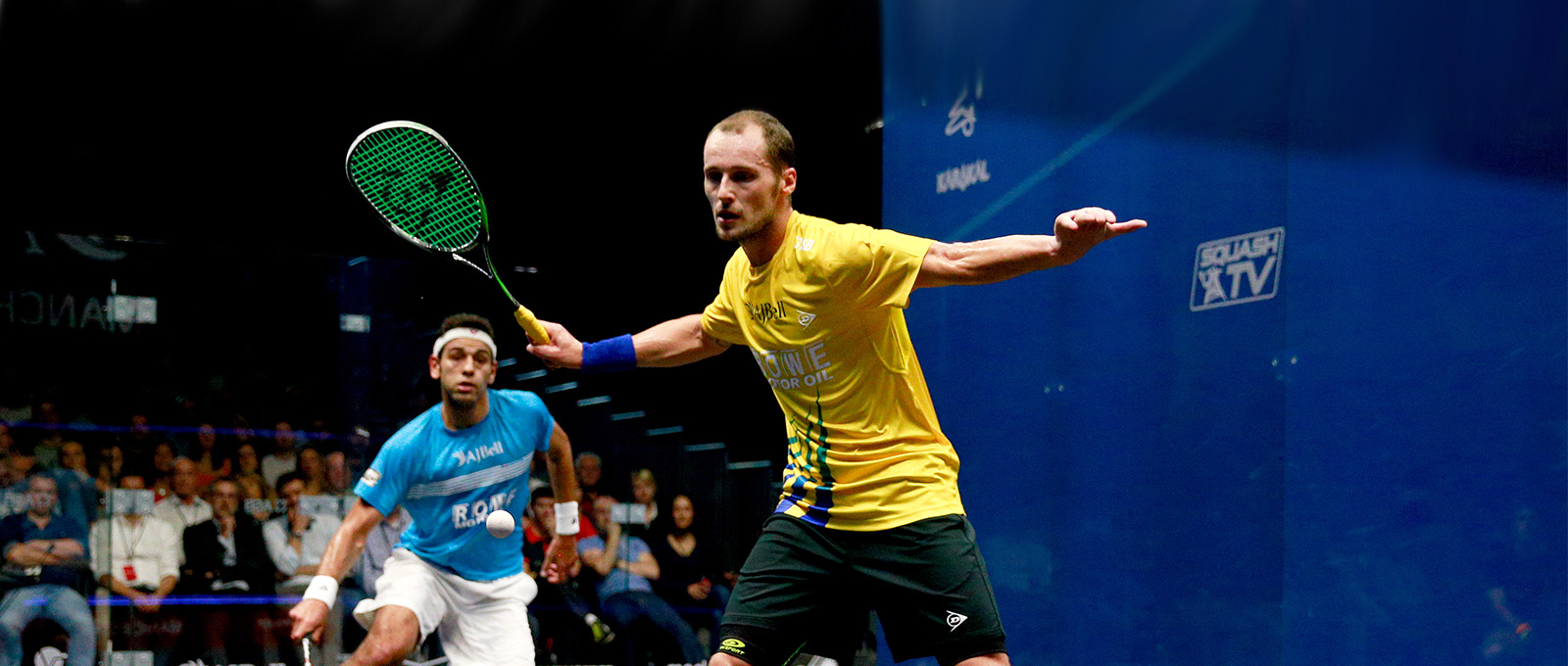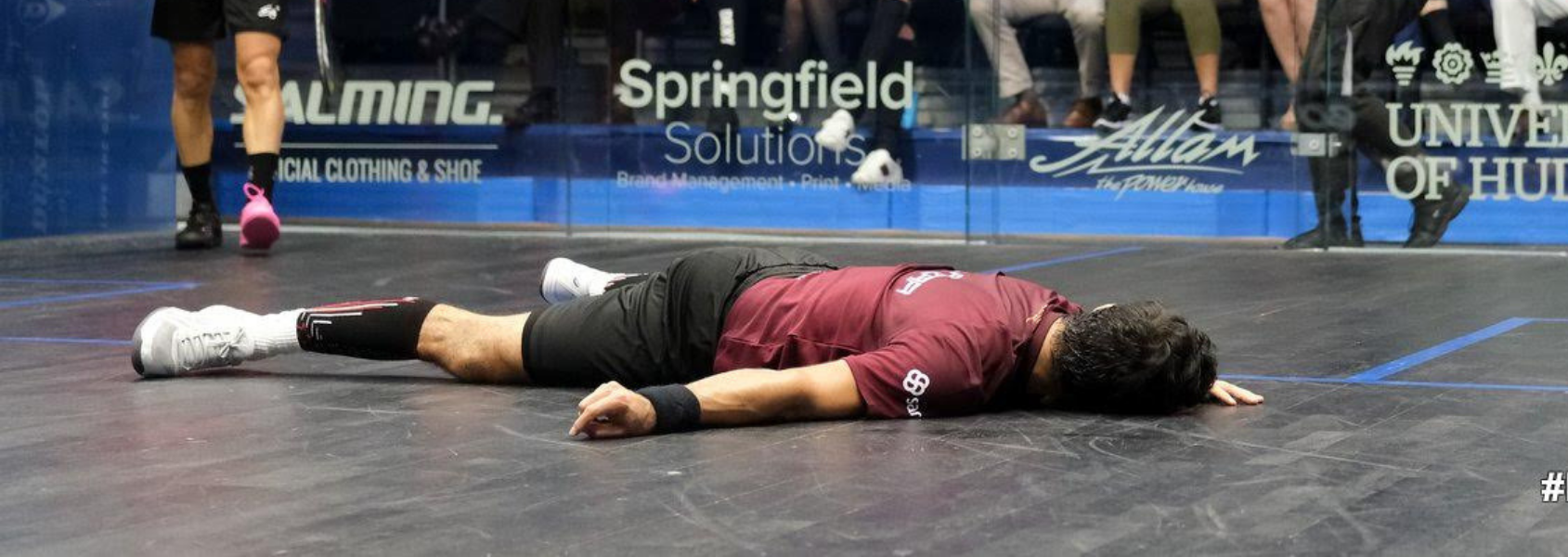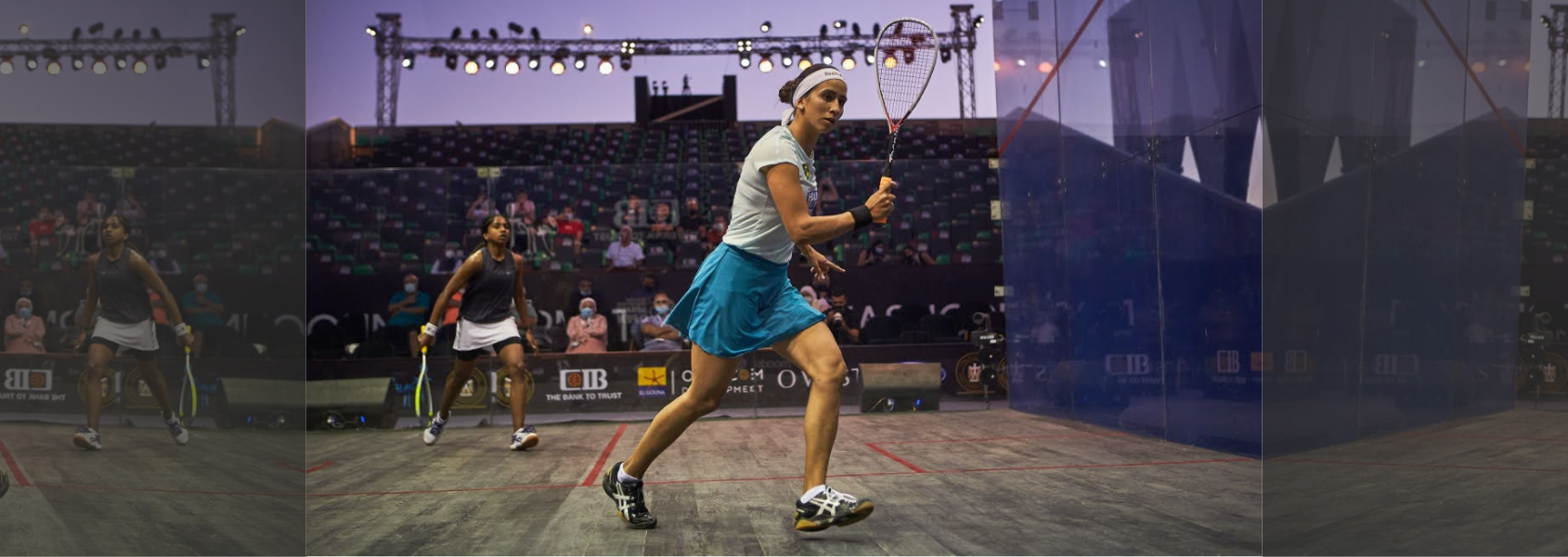Keeping a training diary
If you speak to most top athletes in any major sport, you’ll find that they (or their coaches) will keep a record of all of their training sessions they’ve completed, as well as a schedule for their workouts planned days, weeks, and even months in advance.
While it may be difficult to be that detailed and specific with your records as an amateur player, getting into the habit of keeping a simple training diary can be a great way to provide some clarity to your programme and keep you engaged. It can also give you a useful mental advantage in regards to your preparation for matches, when you reflect back on the work you’ve put in.
Mental agility and strength
We all know improving fitness is an easy way of becoming a better squash player. However, one area and element of the game that we forget about that can also dramatically improve your standard is mental agility and strength.
SMART goal-setting for squash players
The process of ‘goal-setting’ is an extremely useful mental training technique, that can help focus attention and effort when working toward a targeted personal goal.
Used by high achievers across a range of fields from business high-flyers to elite athletes, goal-setting is an excellent tool to enhance adherence and motivation along the way when working toward a desired outcome – for the squash player it’s a great way to formulate long-term targets for their game, and to consider the necessary steps that are needed to get there.
The 4 crucial components of the competitive squash player
To play sport competitively at any level requires a range of different skills and abilities to succeed. To really excel though, it’s necessary to garner a deeper understanding of the major elements that blend together to make up that sport.
While each sport has its own unique set of attributes required for success, particularly one so multi-faceted as squash, all competitive athletic pursuits can be generally divided into four main components: Technical, Tactical, Physical, and Mental.
What’s on your ‘cheat sheet’?
In amongst the fire and brimstone of a tough battle on court, it can often be rather difficult to calm the brain and coolly zoom focus in on the necessary technical and tactical elements crucial to tipping the balance in your favour and increasing your chances of coming out victorious.
Times like these are when a personalised ‘cheat sheet’ can come in extremely useful, to help steady the ship and provide you the essential prompts and guidance toward a triumphant performance!
How to make sure you have a PERFECT squash season!
Autumn is in sight, and the squash season here in the northern hemisphere is almost ready to get back underway, with tournaments and league competition of all levels starting to kick back into full swing.
Motivation and ambition are high at this time of year, so after our recent article on piecing together your preparatory pre-season checklist, this week we’ll be looking ahead and introducing our SquashSkills guide for how you can have the PERFECT season:
P.repare, E.valuate, R.ecover, F.ocus, E.njoy, C.hallenge, T.rain!
Sleep disturbance after squash?
This blog was prompted by a question from a reader regarding difficulties sleeping after having played/trained late in the evening.
‘Choking’ – How to squeeze your way out of it
The concept of ‘choking’ is one familiar to many sportspeople – that sudden catastrophic drop in performance when placed in a pressurised situation, either from before the game/event actually starting, or kicking in during the event game/event itself. This ‘choking’ phenomenon is often seen by teams and athletes even from a dominant or winning position.
Lock away negative thoughts before you hit the court!
Stressful circumstances affect us all – from work difficulties, family issues, financial problems, or even just bouts of frustration with your game when you feel you’re playing badly – and everyone is subject to negative thoughts and mindsets at times.
Being mentally tough for squash
Squash is undoubtedly a supremely tough sport, mentally and physically. The inherent physical nature of the game, trying to execute a game-plan while shoulder to shoulder with an opponent who is attempting to do the exact same thing, battling away within the walled confines of the court as tiredness and fatigue set in, all go toward making it one of the most challenging sports out there for those truly dedicated.
Playing like you practice
A problem frequently bemoaned by sportspeople of all levels, is an inability to replicate their training performance in a more competitive environment.
Many squash players report being able to hit great lengths, cut in wonderful drops, and cover the court effortlessly in training for example, but when it comes to their big league matches or tournaments they’re left frustrated – their technique and poise seeming to desert them just when they need it the most.
Winning ugly
We feature sport psychology and mental training tips here at SquashSkills whenever we can, and our challenge is always to make the content and information as practical and easy to implement as possible. There is a lot of interesting theory surrounding the whole field of sports psychology, but the average squash player is usually (quite understandably) more concerned with what they can do to actually improve and impact their game in the shortest timeframe, and with the minimum fuss possible.

